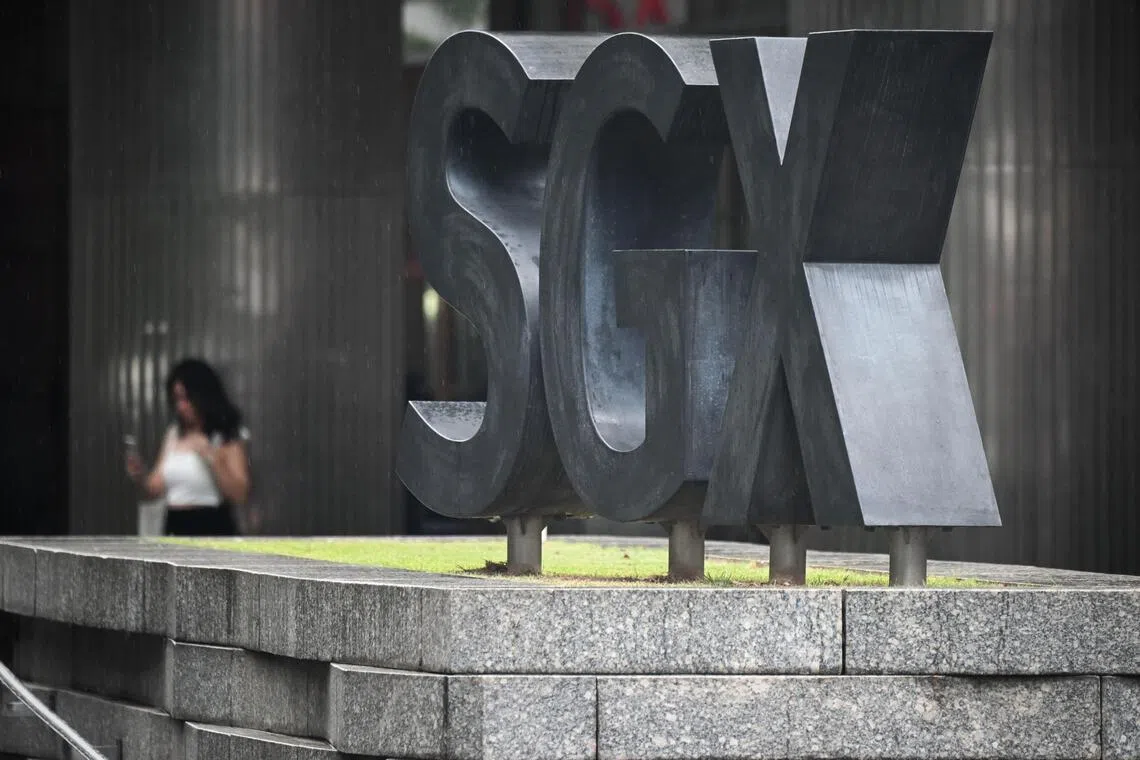Singapore shares slide amid tech bubble jitters; STI down 0.1%
Sign up now: Get ST's newsletters delivered to your inbox

Across the broader market, decliners outnumbered advancers 326 to 236, after 1.5 billion securities worth $2.1 billion changed hands.
PHOTO: ST FILE
SINGAPORE – Local shares ended lower on Nov 5, on the back of a sharp sell-off overnight of tech and artificial intelligence (AI) stocks on Wall Street.
Ms Charu Chanana, chief investment strategist at Saxo, said that AI valuations are under scrutiny, with investors questioning whether their growth can justify their lofty valuations. She added that markets could be entering a phase of valuation correction, rather than further multiple expansion.
Key indexes in the region also closed lower. South Korea’s Kospi fell 2.9 per cent and Japan’s Nikkei slipped 2.5 per cent. Australia’s ASX 200 declined 0.1 per cent, while Hong Kong’s Hang Seng Index was down 0.1 per cent.
In Singapore, the benchmark Straits Times Index (STI) fell 0.1 per cent or 5.6 points to close at 4,417.12. Meanwhile, the iEdge Singapore Next 50 Index lost 1.2 per cent or 16.92 points to 1,443.28.
Yangzijiang Shipbuilding was the biggest decliner on the STI, falling 2.9 per cent or 10 cents to $3.33 after BlackRock sold 37.8 million shares.
Local telco Singtel was the top blue-chip gainer, rising 0.7 per cent or three cents to $4.27.
The three local banks ended mixed. OCBC Bank was up 0.2 per cent or three cents at $17.06, but UOB fell 0.1 per cent or five cents to $34.87. DBS Bank ended flat at $53.50.
CapitaLand Integrated Commercial Trust remained the most actively traded counter on the STI by volume, with 50.2 million units worth $115.6 million traded. The counter fell 0.9 per cent or two cents to $2.31.
Across the broader market, decliners outnumbered advancers 326 to 236, after 1.5 billion securities worth $2.1 billion changed hands.
Ms Chanana from Saxo said that several scenarios could play out, depending on market conditions. For instance, if there are no major macroeconomic shocks, and the US Federal Reserve continues to hint at easing its monetary policy, the market could pull back modestly.
However, rising yields or slowdown in AI spending could lead to a deeper decline in markets.
“Investors may wish to balance opportunities with caution, recognising both potential upside and downside risks,” she said. THE BUSINESS TIMES


